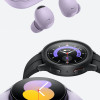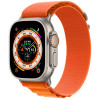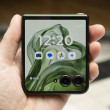The Fastest Networks
Dec 15, 2010, 2:38 PM by Philip Berne
We take a test drive on the fastest cellular data networks available today, including Verizon Wireless' LTE and Sprint's WiMAX. Think you know which is the fastest?
The 4G battles are raging. All of the largest nationwide carriers have their armies lined up for the data war that will last through the next year. Verizon has launched its LTE network; Sprint and Clear are pushing WiMAX; and T-Mobile and AT&T are both backing HSPA+, at least for the near-term. For this in-depth look, we performed extensive tests on all of the fastest data networks available throughout one of the largest metro areas to support the best that the major carriers have to offer.

Methodology
For the last week I've been testing the fastest data networks throughout the massive Dallas / Fort Worth metroplex area. The metroplex is an ideal testing zone for cellular data. It consists of two large downtown areas in Dallas and Fort Worth. There are also smaller urban areas within the city limits. The metroplex twin cities share one of the world's largest airports. Mostly, though, there are vast suburban towns spread out to all sides and between the city limits of Fort Worth and Dallas.
All of the four major national carriers have launched their next generation services here. Verizon Wireless offers LTE, Sprint and Clear offer WiMAX, and AT&T and T-Mobile both offer HSPA+ networking. Even MetroPCS has launched its LTE service in D/FW, but I skipped that network because service is only available on one feature phone, the Samsung Craft, and not on a USB modem.
For my tests, I used a USB modem from each carrier. Almost all of these were loaned units, and I asked the carriers to send their fastest equipment, whenever possible. Verizon Wireless provided an LG VL600 LTE modem. Clear, which provides 4G service for Sprint, sent a Sierra Wireless 250U. T-Mobile sent an HSPA+ rocket. AT&T did not respond to requests for a review unit. The carrier also did not provide specific details about its coverage or projected speeds for its HSPA+ network. In fact, AT&T never even confirmed that the Dallas / Fort Worth area is covered by HSPA+. We purchased an AT&T USBConnect Shockwave modem, made by Sierra Wireless, to use during this test period.
I tested these devices using Windows 7 on my Macbook Pro. I would have liked to test the networks using Mac OS X, as well, but the Verizon Wireless device does not work with the Mac OS. All of the modems I used required software from the respective carriers to create a network connection, and all of these programs worked fine with Windows 7.
I tested the network connection for each of these devices numerous times, in a wide variety of locations covering the length and breadth of the greater D/FW area. It was my intention to exclude any spots where the fastest connection was not obviously available, but this was never an issue in my tests. Every where I tried (with one notable exception), I found LTE service on Verizon Wireless and WiMAX service on Clear. Neither T-Mobile nor AT&T make clear in their software or on their devices when the user is connected to a faster HSPA+ connection.
To maintain consistency throughout my tests, I used the same OS, browser and speed testing site for each network. I used Chrome, my preferred browser, and stuck with the Speedtest.net testing site. When I was closer to Dallas, I chose a Dallas-based server from the Speedtest.net list, and when I was closer to Fort Worth, I used a server in that city. For each town, I ran the same number of tests on each network.
I tested my networks outdoors, usually on the hood of my car in a parking lot. I wanted to avoid as much interference from buildings and structures as possible. There was one exception to this. For my airport run, I tested the networks from within Terminal D at D/FW airport. It is the newest and fanciest terminal. I had to test from the baggage claim area, since I was barred by security from entering the terminal without a boarding pass.
Comments
would like to see what the 3G speeds where on verizon and sprint..
Verizon's network
Also thank you for taking the time to do these tests and post the results for those of us who want to know but are unable to perform these kinds of tests ourselves.
So Sprint #1, Verizon #2, then who cares after that..
&
Sprint has the 2nd fastest data speeds.
Obviously the largest footprint nationwide.
Defininately the most devices...
*Multiple aircards etc.
*2 4G Phones (EVO & EPIC)
& The best Value w/ (inc. unlimited 4G data).
Otherwise, eve...
(continues)
Doing a MiFi 2200 (portable WiFi-to-3G gateway) the CHEAP way
(continues)
Great article phonescoop, Bravo... Bravo!
(continues)
No VZW LTE or Sprint WiMAX here... AT&T or T-Mo
Getro PCS
(continues)
Users?
(continues)
Clear Wire
Variable in different cities
So out of t...
(continues)
New Tech Speeds for your Cell Phone
You'll also want to consider devices... There are currently 2 on Verizon, while Sprint has 13+ devices including Cellphones! The last claim made by Verizon was phones comming the second half of 2011 (chalk up another year).
And lets not forget spectrum, I don't know about you, but when I'm driving my car down the highway during rush hour I would rather have Sprints 8 lane highway than Verzion's 2 lane highway any day.
Denver is a bit different...
T-Mobile has by far the lowest latency out of anyone, with 45-70ms to locations local to Denver. They also "feel" faster than the other providers in terms of page load speed and general mobile broadband experience, though in a few locations they'll fall back to EDGE or just stall out. That said, uploads top out around 650 kbps (though I know TMo can do 1.5 Mbps or so...saw it in Austin). Downloads OTOH vary from 1.5 Mbps (backhaul-constrained) to 11 Mbps, depending on where you are. No real average; it just depends on the tower you're on.
Spr...
(continues)


 Samsung Upgrades its Wearables
Samsung Upgrades its Wearables
 Hands On with the HMD Fusion and its Smart Outfits
Hands On with the HMD Fusion and its Smart Outfits
 Apple Watch Goes Ultra
Apple Watch Goes Ultra



